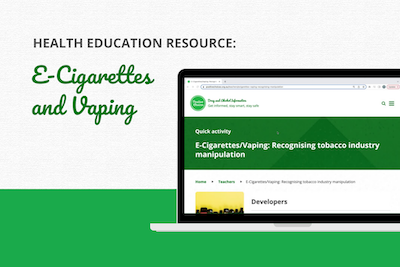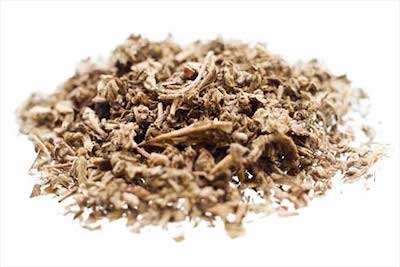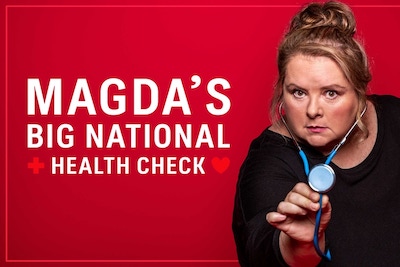|
WELCOME TO OUR FEBRUARY E-NEWSLETTER
|
|
Dear *|FNAME|*,
Welcome back to another school year!
In this newsletter, we explore the evolving relationship between young people and alcohol. We will look at the various risks for young people who use drugs and/or alcohol from an early age, highlighting the important role of teachers in prevention. Teachers and school staff can also access a new training package around vaping and e-cigarettes use, suitable for Year 9/10 health education classes.
To access our other resources for teachers, educators and health professionals interested in keeping young people safe from alcohol and drug related harms, check out our dedicated "Teachers & Schools" portal here:
|
|
|
NEW BLOG POST ON 'SOBER CURIOUS' MOVEMENT!
|
|
Have you checked out our latest blog post yet? Young Australians are drinking less. Contributing to this broader decline in alcohol consumption is the 'sober curious' movement, which encourages people to question the role that alcohol plays in their life. In this blog post, we look at:
- Common reasons why more young people are choosing not to drink alcohol
- Immediate and long term health benefits of not drinking alcohol
- Online resources available to support 'sober curious' young people
|
|
|
RESOURCES FOR TEACHERS
AND HEALTH PROFESSIONALS
|
|

|
Why is drug and alcohol prevention important?
Research shows that the earlier a young person starts to use drugs and alcohol, the more likely they are to experience problems with school performance, mental health, substance use and the law. Learn more here.
|

|
NEW vaping resource for teachers!
Murrumbidgee Local Health District have developed a flexible training package for Year 9/10 students. It covers a range of physical, social & emotional health issues around e-cigarette use. Access it here for your next health education class.
|
|

|
Synthetic Cannabinoids: Factsheet
Synthetic cannabinoids are drugs that are often sold as ‘legal’ alternatives to cannabis. Yet many contain ingredients that are actually illegal and potentially dangerous. Click here to learn more about their immediate & long terms effects.
|

|
ABC Education: "Preventing mental health problems" classroom activity
Featuring short clips from Magda Szubanski's Big National Health Check, this digibook has practical talking points + resources for teachers to better support student mental health.
|
|
|
RESOURCES FOR ABORIGINAL AND TORRES STRAIT ISLANDER COMMUNITIES
|
|
A trusted teacher can be the first person a student talks to about alcohol and other drug use. It is important you are comfortable responding to your students if they come to you and that you can refer them to other sources of help that are available in your area. This factsheet contains some tips on how to successfully talk to Aboriginal and/or Torres Strait Islander youth about alcohol and other drug use.
|
|
|
The Canadian Centre on Substance Use and Addiction (CCSA) has released new guidelines on alcohol consumption, which state that having more than two drinks a week is risky. So how do Australia's current guidelines compare? And what amount of alcohol is really safe? This ABC News article explains.
|
|
|
What's causing the decline in alcohol consumption among adolescents? A study published in Addiction Research and Theory found that alcohol was NOT being substituted by other illicit drugs. Instead, changes in parenting practices have likely caused the decline. Read more here.
|
|
|
|
ORDER YOUR FREE BOOKLETS!
|
|
|
While Term 1 may have already resumed, it's not too late to order your FREE copy of the teachers and schools booklet! It's filled with helpful information around school-based drug prevention. There's even a student version that can be used in your health education classes. Order yours today.
|
|
|
The aim of this e-newsletter is to provide our subscribers with information about drug prevention resources, and to share relevant news and events.
Please help us spread the word by forwarding this newsletter to teachers and educators within your networks, as well as health professionals interested in drug prevention for young people, and encourage them to subscribe here.
|
|
|
|